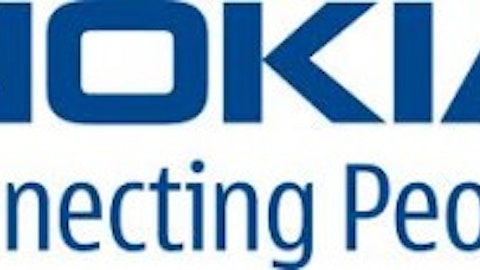The internet isn’t a series of tubes – it’s serious business.
At least, it is for the handful of powerful companies that exploited the revolutionary young technology to amass their incredible fortunes (and change all our lives!) by providing an ever-expanding variety of products and services to almost every inch of the globe.
Marissa Mayer – the freshly appointed CEO at Yahoo! – explained in her recent interview with Bloomberg at Davos that over the past fifteen years or so the internet has seen four cycles of disruptive innovation: “directories, search, social, and mobile.” The companies that most accurately represent those cycles are:

Yahoo! is a relic of the directories era. In the golden age of the internet – when you had to ride your dial-up modem uphill both ways to get to a website – Yahoo! built the first expansive and diversified internet empire with the proceeds of its directory business. It would eventually become a global provider of digital media content and web services over a wide array of industries. It was the first successful attempt at categorizing the internet into a consumable, entertaining, and profitable product.
However, the web eventually grew too large for Yahoo!’s directory model, and years of declining revenues and mismanagement have taken their toll on the company’s stock price. Today, the struggling company is undertaking a major turnaround effort led by former Googler Marissa Mayer. It is unclear exactly how Yahoo! intends to pull itself from the brink of obscurity, but one thing is crystal clear – the old Yahoo! is gone and it’s never coming back.
Google Inc (NASDAQ:GOOG)
Google – also known as the harbinger of Yahoo!’s demise – ushered in the search era. Did you know that from November 12 to December 12 of 2012, Google recorded a market share of 66.7% of the US search market? With the billions of dollars generated from search-based advertising, Google has invested in, created, and purchased countless products, projects, companies, and ideas. Notably, the company recently achieved success with its Android mobile operating system, purchased Motorola for $12.5 billion in May of 2012, and maintains a portfolio of some of the world’s most popular consumer web applications, such as Gmail, Maps, YouTube, and News.
But even Google doesn’t get it right every time. Google+, a social network built to compete with Facebook Inc (NASDAQ:FB), hasn’t achieved the level of success the company – and some investors – had hoped for. Their cloud-based Chrome operating system and associated Chromebooks haven’t reached significant market penetration. And, back in August of 2012, Google announced that the Nexus Q – a mysterious media streamer which debuted at Google’s annual I/O event – was no longer available for preorder from the Google Play Store and those who preordered received an email informing them of an indefinite delay for the device. The good news was that those who had already preordered would still receive theirs – free of charge – while Google “worked on making it even better.”
But still, Google continues to innovate and take risky bets on new industries. Self-driving cars and Google Glass – an augmented reality device shaped like a pair of glasses – are just two examples of some of Google’s more exotic projects.





